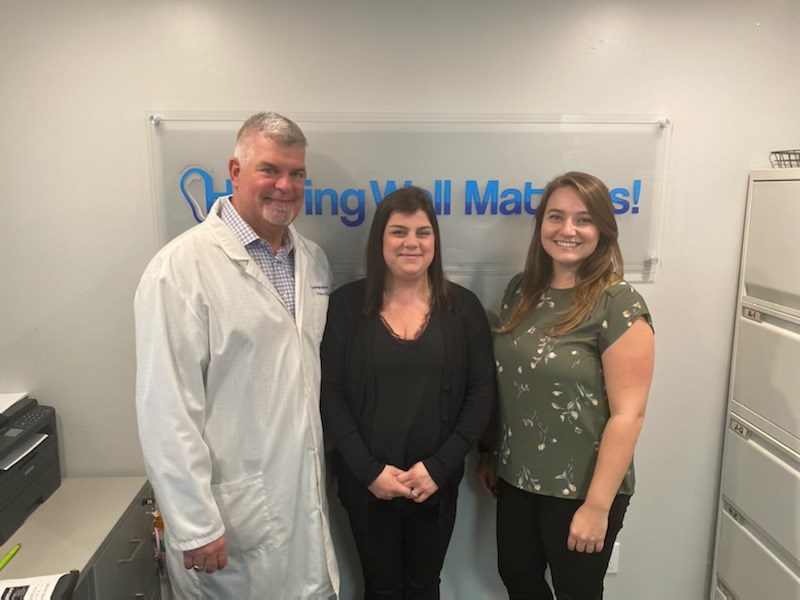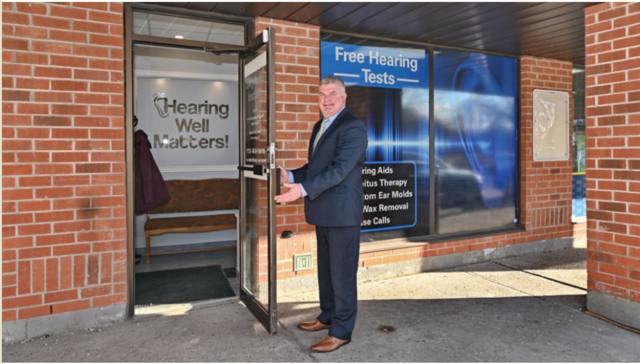Consider getting your or a loved one’s hearing checked
Hearing loss is often associated with getting older, but there are other factors that can contribute to it—including exposure to loud noise. There are simple steps that people of any age can take to protect their hearing.
“We live in an increasingly noisy world, so there is certainly more and more exposure to noise. But there’s also a greater understanding that noise —whether occupational or recreational— can be a significant factor in hearing loss. Wearing ear protection when you’re exposed to noise is highly advisable,” says Rob Hamilton, owner and clinician at local hearing clinic, Hearing Well Matters.

Sensorineural hearing loss is the most common type of loss. It occurs due to some degradation of the specialized nerve cells in the middle ear, due to aging and/or noise exposure. About 60% of people over 60 have some high-frequency hearing loss, making it difficult to hear speech clearly. After the age of 50, Rob says it’s advisable to get your hearing checked annually, or every other year.
The second-most common type of hearing loss is conductive hearing loss, which is usually associated with some dysfunction in the outer ear. This is the type that can be caused by ear infections or other diseases of the ear.
Typical signs of hearing loss include difficulties hearing speech in background noise —such as in a noisy restaurant— or having trouble understanding someone clearly from another room or floor. Other signs include thinking that others are mumbling, or asking people to repeat themselves. Difficulties hearing dialogue on TV, or If the TV or radio volume needs to be turned up louder than in the past, can be additional signs of hearing loss.
If you’re concerned that you or a loved one may be suffering from hearing loss, a hearing test can be performed at a clinic like Hearing Well Matters. Hearing healthcare professionals at the clinic conduct thorough hearing tests that take about an hour to complete.

First, they look in the ear to examine the ear canal and eardrum, using a video otoscope. After that, they usually perform a pressure test to see how flexible the eardrum is. Next, they put the patient in a soundproof booth to do a couple tests: one in which different frequencies of sound are played to the patient, and then a series of speech tests, to better understand how well the patient distinguishes speech with and without background noise.
Rob says that the impact of hearing loss sadly doesn’t just stop at our ears. “Hearing is very important for our day-to-day communication, but it is also important for our brain health as we age.”
The #1 modifiable risk of cognitive decline and dementia has been shown to be untreated hearing loss. Even mild hearing loss is associated with a three times greater risk of falling, as the balance and hearing centers are close to each other in the middle ear.
Hearing loss is also associated with significantly higher rates of depression, fatigue, and anxiety. “When you don’t hear well, you just don’t feel like going out and socializing with friends and family as much— and that can lead to social isolation and depression,” says Rob.
May is recognized as Better Speech and Hearing Month, so it’s a good time to consider getting your hearing checked, or encouraging a loved one to do so. What could be a better gift for Mother’s Day or Father’s Day than giving them the gift of better hearing?
If you have concerns about your hearing, Rob encourages you to come visit him and his staff. During May, Hearing Well Matters will conduct the hearing tests free-of-charge for you or a loved one, and provide the results to your family doctor.
“Hearing Well really does Matter.”



